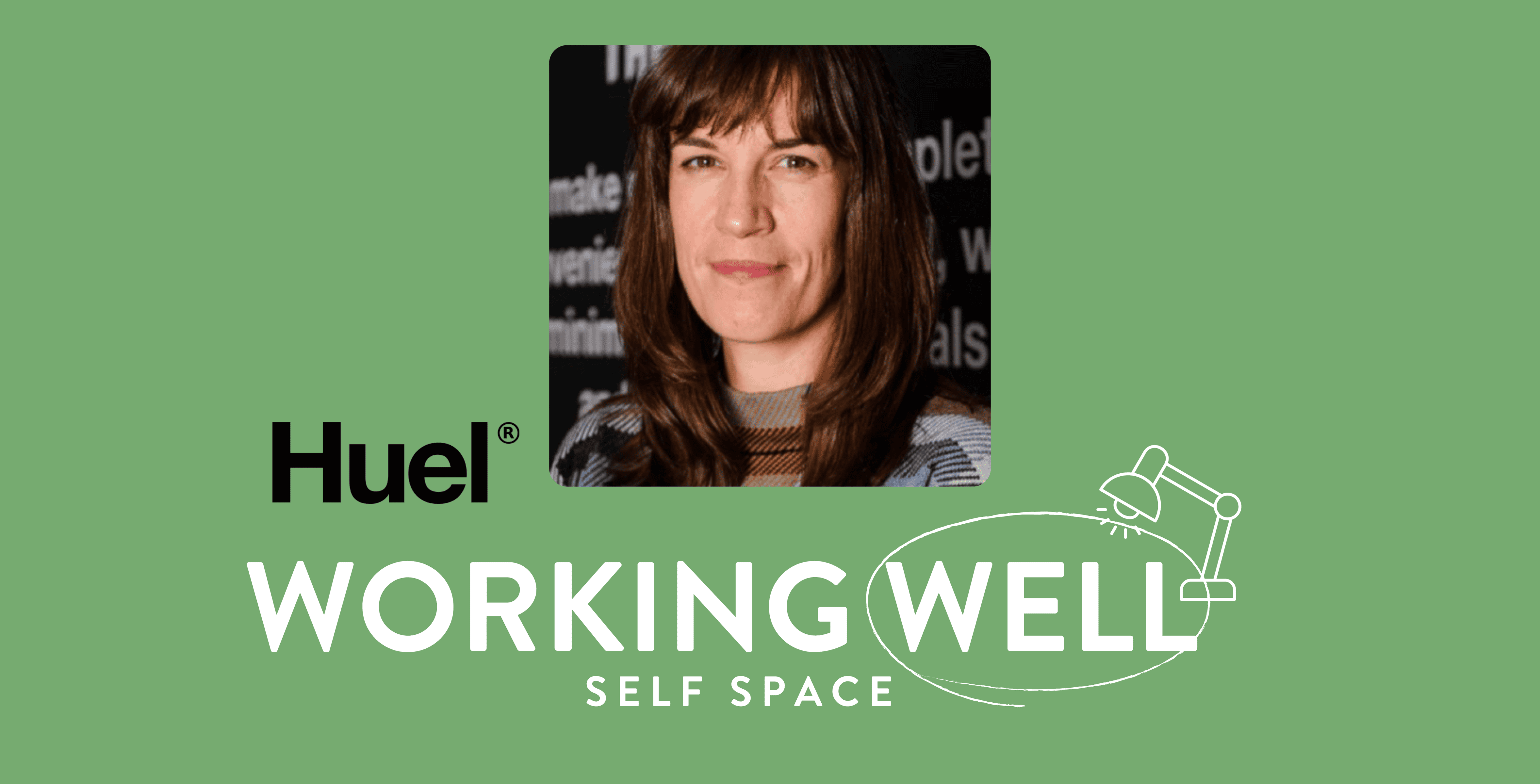
I’m pretty well. I came back to work from maternity leave last summer, and I think it’s taken me about 6 months to get into the routine of juggling work and nursery logistics! I definitely feel like we are all a bit more into the swing of things now… TotallyMoney is a credit app that helps people improve their finances, so they can climb towards their goals and unlock a life of more options. We’re building a fairer financial world — where previously overlooked consumers have the information they need to make smarter, more informed decisions. And where everyone always knows their next step forward. Today, our app is helping over 5 million UK customers build their credit scores, manage their finances, switch to cheaper borrowing options and more. I think it’s really motivating for me, and for everyone who works with us, to be building a great product that we know really helps people, for free! Particularly when times are tough in the market: we need to weather the storm because we know that if we’re feeling the pinch, chances are it’s having an even bigger impact on our customers. It sounds obvious, but Self Space is working well for us and is the central pillar of our offering that I am really set on keeping. Even if we have a few months where nobody from the team is using the service, it’s invaluable to me – and to our leaders and managers – to know that we have it available to us, so that if one of our people does suddenly have an urgent need, we can give them access to free, quality therapy straight away without worrying about NHS waiting times. Separately, we also work hard to create a supportive, flexible environment that encourages balance and reduces burnout: our folks can choose their own working pattern within our core hours, choose what days they come to the office, and take a Duvet Day if they’re not up to working for any reason. We have trained Mental Health First Aiders across the business to also encourage the team to talk about mental health and to signpost help if any is needed. Good question! From my side, what I am trying to achieve is to create an environment where people can bring their whole self to work if they want to… and that’s the key. If you want to. For a lot of us, there might be areas of our personal life that we want to keep personal; that we don’t feel the need to bring into work – and that’s completely fine. But for me – if there’s something you do want to bring, if there’s something you get a kick out of and you want to share it with others, or equally if there’s something you’re struggling with and you want your workplace to know, you should be able to do that with complete impunity. I think it’s about being authentic – and that’s easier to get your head around than bringing your “whole self”. Nobody should feel like they need to hide anything, that’s a lot of weight to carry to work. One of the biggest challenges for me is taking things personally. I invest a lot in what I do: I’m passionate about making TotallyMoney a great place to work, and I am very proud of my work, so then when we get constructive feedback about anything – and bearing in mind we have various feedback routes we use to farm for feedback – it’s sometimes hard not to take it personally. I just have to remind myself to take a step back though, and that it’s almost impossible to please everyone all the time. Getting divorced at 31 was pretty challenging and not something I had envisioned for myself, and definitely not planned when I was getting married! But hey, nobody gets married thinking they’re going to get divorced, and all you can do is give something your best shot and see what happens. At the time I felt quite ashamed about it, particularly when it felt like I was surrounded by friends who were still just getting married, and I had already been there, done that, and screwed up. But now I am a bit kinder to my 25-year old self who got married, and I have tried not to lose my optimism and the hopefulness with which I jump feet first into situations. I don’t see it as a “mistake”, just a choice I made at the time, which looks different in the rear-view mirror. Work in my family was something that took quite a lot of your time and was quite hard to get away from sometimes. My dad ran his own architecture practice specialising in educational buildings. It was great though because his office was close to home and so he was always the person who came home early, watched The Simpsons and made supper. My mum worked in contemporary applied arts. She was one of those Boomer success stories where after Art College she ended up working as Receptionist in a gallery in Soho and then one day basically ended up being put in charge of it, and the rest was history. She then moved on to work for the Craft Council for years. She loved it, but I think it was quite misogynistic and competitive – and a bit of a challenge to juggle with family life. We were all lucky dad was able to be around so much, which was a bit unusual for the 90s I guess. Regularly! I feel like I’m either not good enough at work, or not good enough at home, or not good enough with my friends – I’m never nailing it on all fronts! I also found myself in HR after a bit of a career pivot away from archaeology and museums/ heritage, so I always feel like I am playing catch up for having started late. I think some of them already know, but I guess for others the surprise would be that I have a PhD in metal detectorists and landscape archaeology… Alternatively, maybe the fact that I once went through the recruitment process to join the Met as a Detective. I got cold feet, but I still think I would have been great at it. Spiders. And making payroll mistakes. That sometimes the workforce today – especially our younger employees – need to be grateful for the amazing work environments that they have. Don’t get me wrong, I think it’s great that people have high expectations these days, and particularly that they call out if some imbalance needs to be corrected. But I think there is a bit of a challenge where if you haven’t worked somewhere without all these amazing perks and flexibility, you can take it for granted. I love a bit of mindful Lego while listening to a podcast. Or just doing the nursery pick up at the end of the day and getting a short walk in can really help to clear the cobwebs. Recently I’ve also started having some coaching sessions, which has been useful to provide some outside perspective. It’s hard because I think at the end of the day, it really will come down to the individual and whether they are in a position to go and seek help if needed – we can put all the support in place, but you need someone to actually take it. In the meantime though, I think we can create an environment which prioritises people’s wellbeing and mental health: one where flexibility is given, where people are trusted to manage their own time and work-life balance, and where the work is meaningful and people have autonomy to get it done, without worrying about a blame culture. I think it depends, but for me – if you and the culture you are trying to create don’t chime with the organisation, or if you are struggling to get buy-in from Leadership, then don’t waste too much time trying to change it. You’ll only end up burning yourself out. For People People, it’s vital to work somewhere that is aligned with your own personal values and what you’re trying to achieve. Otherwise it’s like being a sunny plant stuck in a windowless bathroom. You’ll do ok for the first few months but quite quickly you’ll start to fade. Working Well invites HR, People People, and business leaders to inhabit vulnerability and authenticity in having a proper conversation about what’s working well at work, what’s challenging, and how they look after their own mental health. We still work with the outdated idea that we should check the messy parts of ourselves at the door of our professional lives, but the best leaders are the ones that hold consciousness around this and model that it’s okay to show up fully. Join us in positively shifting the culture of mental health at work. One good conversation at a time.First, how are you (really)?
Say I knew nothing about TotallyMoney, what can you tell us about what the company does & why you do it?
What’s working well for you at TotallyMoney when it comes to supporting your people’s mental health at work?
What does it mean to bring our whole self to work? Can we? Should we?
What is something that you struggle with at work?
What are some of the challenges you have overcome for which you are proud of yourself?
What was the story of work in your family?
Do you ever feel not good enough?
What is something surprising about you that your colleagues might not know about?
What are you scared of?
What is one thing that you are not saying — that needs to be said?
What do you do to take care of your own mental health?
What can employers do to really support the mental health of their people?
Finally, what advice would you give to someone in your role if things aren’t working well at work?
Honest conversations about mental health at work.


